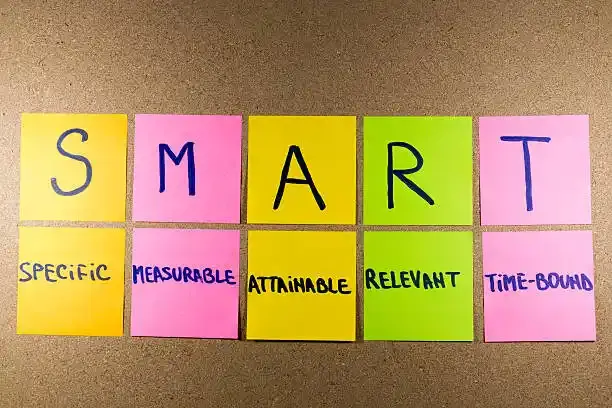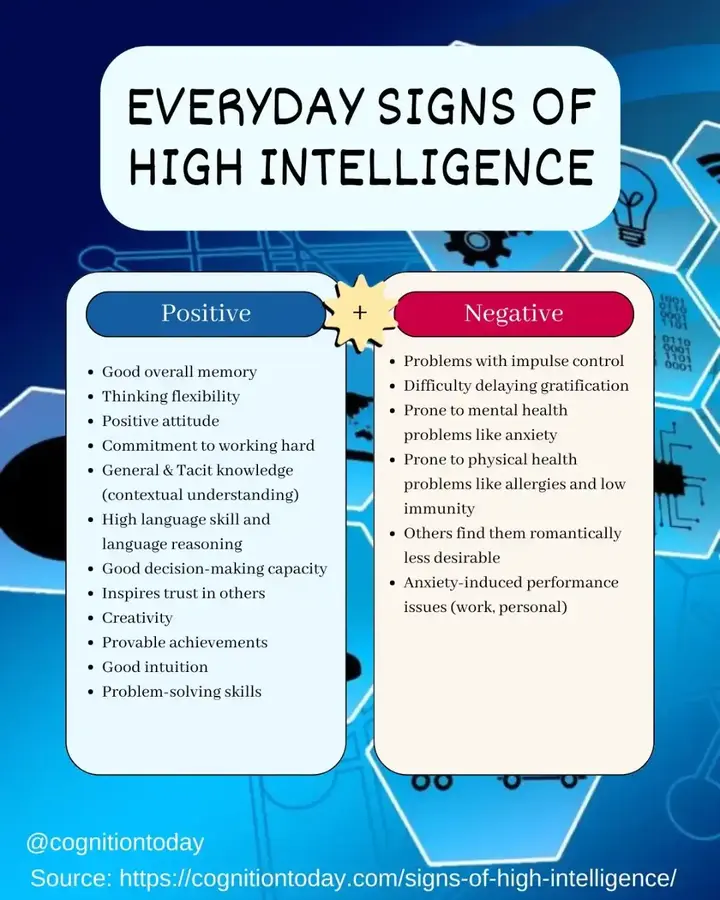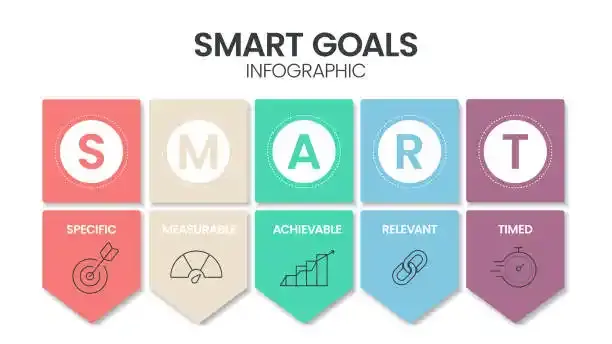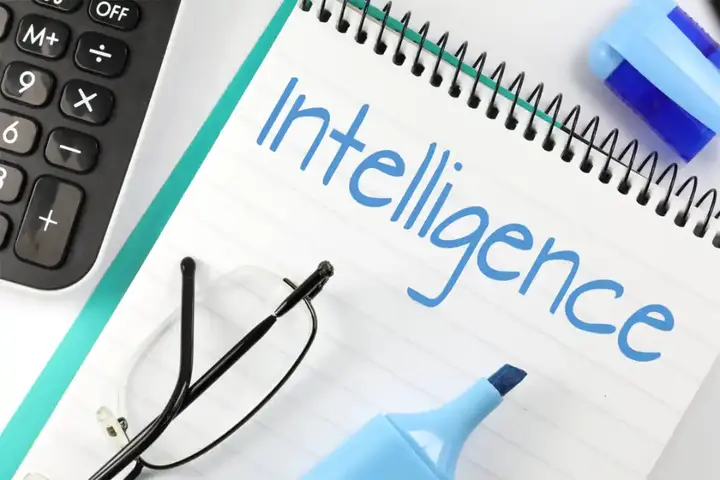The real signs of a very intelligent person
Intelligence has always been the subject of fascination, discussion and study throughout human history. From early theories of IQ to the modern understanding of emotional and social intelligence, the perception of what it means to be "smart" has evolved significantly. But what are the real signs of a very intelligent person? And how can these traits be recognized in ourselves and in others? This article deals with the criteria used to classify intelligence, the most prominent signs of intelligence, the accuracy of these indicators, and flexibility in dealing with them and in their application.
1. Classification of people based on intelligence

People have long been ranked on the basis of intelligence, often using standardized tests such as intelligence quotient IQs. Although these tests are widely used, they have their own limitations and some bias in their results. They generally measure logical thinking, mathematical ability, and language skills, and often primarily ignore other forms of intelligence and some of its manifestations.
Recommend
Modern classifications of intelligence now include multiple intelligence, such as emotional intelligence, creative intelligence, and social intelligence. These new dimensions recognize that intelligence is not one-dimensional, but rather a complex interaction between different cognitive and emotional abilities, and that the results of measuring intelligence cannot be absolute, but relative.
2. Standards for measuring intelligence

Defining intelligence includes several criteria, including problem-solving, creativity, emotional understanding, and adaptability. Traditional IQ tests focus on logic, mathematical reasoning, and verbal skills. However, recent research suggests that other factors such as creativity, emotional intelligence, and adaptability are equally important.
To accurately assess intelligence, a holistic approach is necessary, which takes into account a range of cognitive abilities and the ability to apply knowledge in real-world situations. This broader perspective leads to a more comprehensive understanding of what it means to be truly smart.
3. Percentage of individuals with high intelligence

The proportion of individuals with high intelligence in the population is relatively small. Statistically, only about 2-3% of the population scores exceptionally high on traditional IQ tests. However, if we look at broader definitions of intelligence, including emotional and social intelligence, the proportion of individuals with high intelligence may be greater.
Intelligence is often distributed across different domains, which means that someone may excel in one field, such as math, while another person may be gifted at understanding and managing social relationships. This distribution challenges the idea that intelligence can be easily measured.
4. The main signs of a very intelligent person

Many signs are usually associated with high intelligence. These signs include:
A. Curiosity: Very smart people have insatiable curiosity. They are constantly striving to learn and understand new things, driven by a deep desire to explore the unknown.
B. Adaptability: Smart individuals can adapt to new situations and environments quickly. They are flexible in their thinking and can change their approach when faced with new challenges.
c. Solve complex problems: Smart people excel at solving complex problems, and often find innovative solutions that others may ignore. This ability to think critically and creatively is the hallmark of intelligence.
d. Emotional intelligence: Understanding and managing emotions is one of the main signs of intelligence. Very intelligent people are often emotionally aware, both for themselves and for others, and can navigate social situations easily.
c. Openness: Smart people are open to new ideas and perspectives, and are often willing to challenge their own beliefs and consider alternative perspectives.
H. Self-awareness: Individuals with high intelligence have a strong sense of self-awareness. They understand their strengths and weaknesses and constantly strive to improve themselves.
5. Accuracy of IQ scores

While the above scores are usually associated with intelligence, they are not guaranteed indicators. Intelligence is multifaceted, and no single mark or test can fully capture a person's intellectual abilities. Moreover, cultural, environmental, and psychological factors can influence these signs.
For example, someone may not show strong emotional intelligence due to lack of exposure to different social situations rather than due to lack of ability. Similarly, curiosity may be stifled in environments that discourage exploration. Therefore, while these scores can provide clues, they should not be used as definitive measures of intelligence.
6. The development of understanding intelligence

The understanding of intelligence has evolved over time, moving away from strict categorizations and narrow standards. The recognition of multiple intelligence has broadened the perspective around it, allowing for a more comprehensive and accurate assessment of human potential.
As the complexities of the human mind continue to be explored, the standards for what constitutes intelligence are likely to expand further. This continuous development underscores the importance of continued openness and adaptability in the approach to understanding intelligence.
Conclusion

Intelligence is a complex and multifaceted trait that cannot be easily defined or measured. While some signs such as curiosity, adaptability, and problem-solving abilities are often associated with high intelligence, these indicators are not definitive. A holistic approach, which takes into account the different forms of intelligence and the contexts in which they appear, provides a more nuanced understanding of what it means to be truly intelligent. As knowledge of the human mind continues to grow, so does an appreciation for the diverse ways in which intelligence can be expressed.
![]()
Clothing Trading - Hidden Tetanus Discovery
Clothing trade can be highly profitable when you understand fashion trends, know your target customers, and offer quality products at affordable prices. Choosing the right type—like children’s or women’s wear—and selecting a smart location or online platform can boost success. Marketing and customer service also play big roles. more- ADVERTISEMENT
![]()
Due to lack of funding, old NASA may be on an unsustainable path
Underfunded, aging NASA may be on unsustainable path more- ADVERTISEMENT
![]()
9 reasons why small businesses fail
9 reasons why small businesses fail more- ADVERTISEMENT
![]()
The concept of financial liberalization - how can you achieve it?
The Financial Freedom Concept - How can you achieve it more- ADVERTISEMENT
![]()
For an unforgettable photo – your simplified guide to professional photography with minimal potential
For an unforgettable photo – your simplified guide to professional photography with minimal potential more- ADVERTISEMENT
![]()
Global Solar Radiation: Regional Disparities and the Potential of the Middle East
Bathed in sunlight and embracing vast deserts, the Middle East shines as a global leader in solar energy. With over 3,000 annual sunshine hours, the region fuels innovation and growth, setting the stage for a bright, clean-energy future powered by the sun. more- ADVERTISEMENT
![]()
Creativity without borders: practical ideas to develop your creative skills
Creativity lives in all of us—it's not a gift for the few, but a skill we can all grow. With the right habits, fresh experiences, and a supportive environment, we can overcome fear and routine to unlock ideas that spark innovation and make life more exciting and meaningful. more- ADVERTISEMENT
![]()
Unexplained phenomena - a list that drives you crazy!
Marfa lights, glowing mysteriously in Texas deserts, and intricate crop circles bent into fields with no clear cause, both baffle scientists and spark theories from the natural to the supernatural. The Bermuda Triangle, too, remains a hotspot of intrigue, with ships and planes vanishing, leaving only questions and fascination behind. more- ADVERTISEMENT
![]()
The impact of virtual reality on communities and people around the world
Virtual reality is changing how we live, from exercising at home to experiencing full games and even seeing houses before buying them. But too much use, especially by kids, can lead to disconnection from reality and health issues. It’s up to the user to choose how VR affects their life. more- ADVERTISEMENT
![]()
A book that may interest you: pistachio theory
A book that might interest you - Pistachio Theory more- ADVERTISEMENT





















